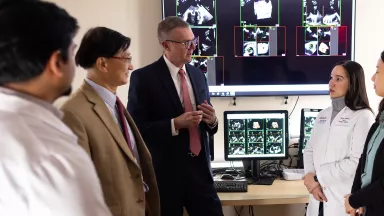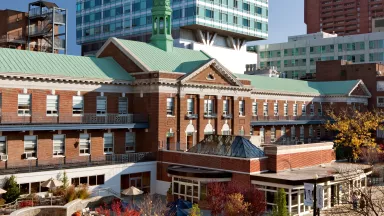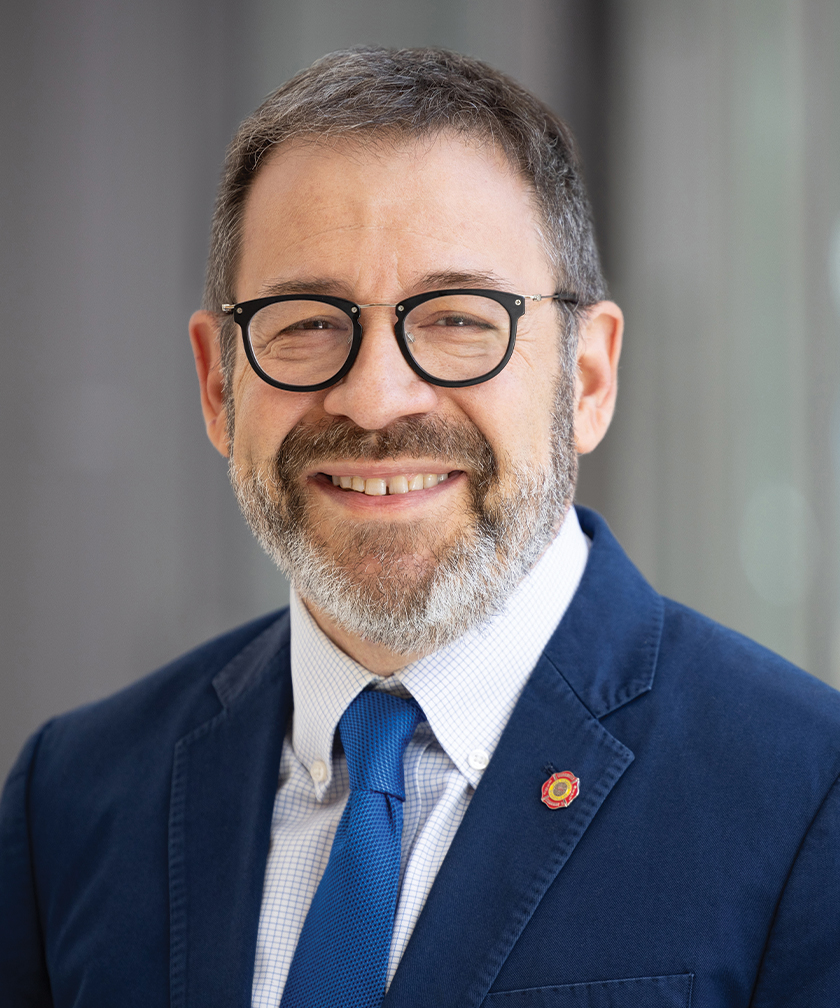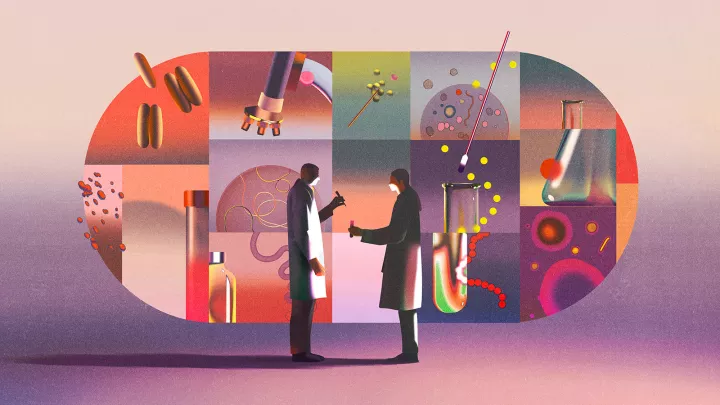Our Approach to Mechanical Circulatory Support & Heart Transplantation


Montefiore Einstein Mechanical Circulatory Support and Heart Transplantation Program is one of the most active and successful programs in the country, with one of the best heart transplant survival rates in New York and among the highest in the nation. We performed the world’s first HIV+ to HIV+ heart transplant, and we are one of few programs in the nation and the only team in New York to perform bloodless transplants. We’re ranked in the top 1% of all hospitals in the nation for Cardiology, Heart & Vascular Surgery according to U.S. News & World Report.
For patients with advanced heart failure who do not respond to medication, we provide a wide range of acute and chronic mechanical circulatory support and ventricular assist devices (VADs), which can restore normal blood flow by pumping blood from the left and/or right ventricle to the aorta and/or pulmonary artery.
We have the best heart transplant program in the nation and are an international referral site for complex cardiovascular care. For patients with end-stage heart failure who are no longer responsive to medication or assistive devices, we offer heart transplantation, a procedure that replaces the patient's diseased heart with a healthy donor heart. Heart transplantation begins with a thorough evaluation, followed by a series of assessments, determinations, and prioritization procedures.
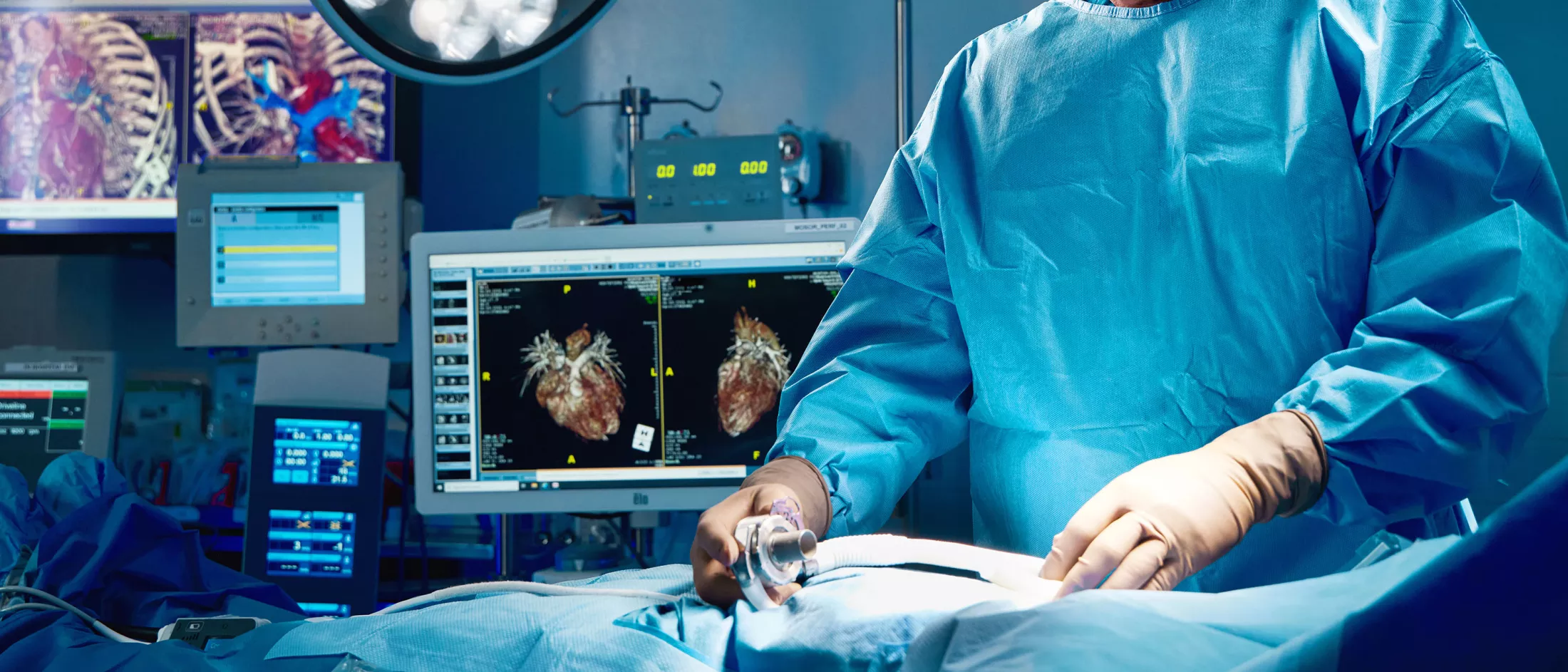
Surgical Treatments with Advanced Devices
We offer acute and chronic mechanical circulatory support and ventricular assist devices, (VADs). These devices can support the left ventricle (LVAD), the right ventricle (RVAD), or both (BiVAD). VADs can be used as a bridge to transplantation, a bridge to recovery, or a destination therapy, also known as long-term therapy. We offer the following advanced devices:
A mechanical circulatory support pump with Full MagLev™ Flow Technology which has advanced the field of LVAD therapy. This innovation maintains gentle blood handling to minimize complications and adverse events related to hemocompatibility. The HeartMate 3 LVAD™ is used for advanced heart failure patients needing short- or long-term mechanical circulatory support.
This LVAD provides short- or long-term circulatory support for patients with intermediate-to-advanced heart failure. This small pump features only one moving part and can provide blood flow equivalent to that of a healthy heart.
Global Leaders in Heart Transplantation
As one of the largest programs in the country with some of the nation’s highest survival rates, we are leaders in heart transplantation. Heart transplantation begins with an evaluation by our multidisciplinary team of cardiologists, cardiothoracic surgeons, imaging experts, transplant specialists, anesthesiologists, social workers, and others, who assess four main factors:
1. Severity of Illness
The team evaluates whether the patient is experiencing advanced heart failure and requires a new heart.
2. Medical Fitness
If the severity of illness requires a new heart, the team will examine whether the patient has any other medical conditions that would have an impact on heart transplantation.
3. Psychological Fitness
To stay healthy, transplant patients are required to adhere to strict behavioral guidelines, lifestyle modifications and regimented medication. They must demonstrate the capacity to comply with treatment for the long term.
4. Social and Emotional Support
Heart transplantation is not a procedure any patient should experience alone. A strong network of support is critical to recovery.
Next Steps: Additional Factors to Consider
Once a patient’s priority on the transplant list is established, additional factors are considered in determining the likelihood of a successful heart transplant.
A donor heart must be transplanted within four hours to remain viable.
Donors and recipients must have compatible blood types.
Donors and recipients must have compatible body sizes, e.g. a heart from a donor who is six feet tall may be too large for a recipient whose height is only five feet.
When two recipients are equally compatible with a donor, the heart is given to the patient whose illness is most severe and/or who has been on the transplant list the longest.
To ensure that the donor heart is received in less than four hours, the surgical team that removes the heart from the donor remains in constant contact with the recipient team at the Heart Center.
While waiting for the heart to arrive, the recipient is prepared for surgery as quickly as possible. The patient is placed on an extracorporeal membrane oxygenation machine, also known as ECMO. Upon arrival of the donor heart, the surgeons remove the recipient's diseased heart, then prepare and implant the new heart. Following the 90-minute procedure, the patient is removed from the heart-lung machine. Once heart function is stable, the patient is moved to the intensive care unit for further care.
Rejection occurs when the patient's immune system recognizes the new heart as foreign and mounts an immune reaction to it. The new heart is biopsied routinely to look for evidence of rejection, and immunosuppressive medication is adjusted, as necessary.
At home, patients watch for other signs of rejection, including shortness of breath, flu-like symptoms and low-grade fever. Although recipients must take anti-rejection medication for the rest of their lives, the first year following the transplantation procedure is the most critical. Fortunately, severe rejection is very rare, and most cases can be treated by increasing rejection medications.


For Patients, Families & Caregivers
Questions? To learn more about Montefiore Einstein Mechanical Circulatory Support and Heart Transplantation, please call: 718-920-2100.



